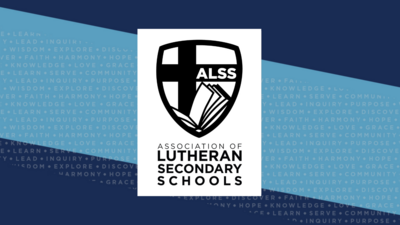School Counseling & Executive Functioning

In today’s educational landscape, school counselors play a pivotal role not just in academic guidance, but in empowering students to harness their executive functioning skills across learning, behavior and life management. At Concordia University, Nebraska, aspiring school counselors are equipped to serve as Christ-centered professionals who care for the whole child—mind, body and spirit—while equipping students with tools to flourish in and beyond the classroom.
Understanding Executive Functioning
Executive functioning refers to the suite of cognitive processes that enable us to plan, organize, initiate tasks, regulate emotions, sustain attention and adapt to changing demands. These executive skills include:
Working memory: holding and manipulating information.
Cognitive flexibility: shifting perspectives or strategies as needed.
Inhibition: resisting distractions or impulses.
Planning and organization: setting goals, prioritizing tasks and sequencing.
Self-monitoring: assessing progress and adjusting accordingly.
For students, strong executive skills translate to better focus in class, improved study habits, effective time management and more adaptive coping when stress arises. In contrast, executive functioning challenges can present as procrastination, disorganization, difficulty regulating emotions or struggling to transition between tasks.
The Role of School Counselors
School counselors work at the intersection of academic achievement, social-emotional development and personal growth. When equipped with expertise in executive functioning strategies, they can:
Screen for executive skill gaps using observation, interviews or structured tools.
Teach routines such as daily planners, checklists, time-estimation strategies and “chunking” larger tasks.
Implement structured assignments, classroom signals, or visual planners to scaffold student success.
Guide students in self-monitoring feelings and using calming tools (e.g., prayer, breathing, walk breaks) when overwhelmed.
Educate parents on fostering consistency, establishing homework rituals and reinforcing organizational routines at home.
Record progress in executive skills, acknowledge improvements and build student confidence.
School counselors well-versed in executive functioning help students become more efficient, resilient and self-directed learners, while reflecting Christ’s compassion and care in every interaction.
Why Executive Functioning Matters in School Settings
Boosted academic performance
Students who can proactively plan, break down assignments and avoid procrastination tend to complete work on time and with less stress.
Improved behavior and classroom climate
Self-regulation helps minimize impulsive disruptions and supports smoother transitions, benefiting the entire classroom environment.
Equity and inclusion gains
Executive functioning strategies like using visual schedules or scaffolds provide additional structure that often levels the playing field for students with ADHD, learning differences or language needs.
Preparation for adulthood
These same skills are critical beyond K-12, aiding in college planning, career readiness and everyday life management, like budgeting or scheduling.
Practical Strategies for Counselors
Here are some evidence-informed techniques school counselors can integrate:
Schedule weekly check-ins to help students preview their schedule, prioritize tasks, estimate time needed and reflect on what’s working.
Encourage students to use calendars, graphic organizers and color-coded folders to manage assignments and deadlines.
Teach students to divide long tasks into smaller, timed segments with short breaks (“Pomodoro” style).
Use journals or apps where students note when they felt distracted, stressed or on track and what strategies helped.
Begin with a counselor-led routine, then gradually fade support, moving toward student-directed systems.
Host small group sessions showing families how to reinforce executive functioning at home with consistent expectations, modeling and faith-filled encouragement.
Training School Counselors in Executive Functioning
At Concordia University, Nebraska, school counseling is more than a career path, it’s a calling. The Master of Arts in School Counseling program prepares graduates to serve students with excellence, empathy and Christ-centered integrity.
Concordia’s counseling program integrates Christian values with best practices in counseling, preparing graduates to walk alongside students with both professional expertise and the hope of Christ. Students gain hands-on training in real-world school settings, guided by caring faculty and seasoned counselors, applying skills in executive functioning and academic guidance.
Executive functioning is not an abstract concept; it’s the backbone of student success in academics, social-emotional growth and preparation for life. School counselors trained in these strategies wear many hats: mentor, advocate, systems-builder and encourager. The result is a new generation of school counselors equipped to support student success today and into the future.
At Concordia University, Nebraska, the M.A. in School Counseling shapes counselors who serve as the hands and feet of Christ in schools. Graduates leave ready to support executive functioning, foster inclusive environments and care for every student as a unique child of God.
Interested in Concordia University, Nebraska's M.A. in School Counseling?
Related Stories


